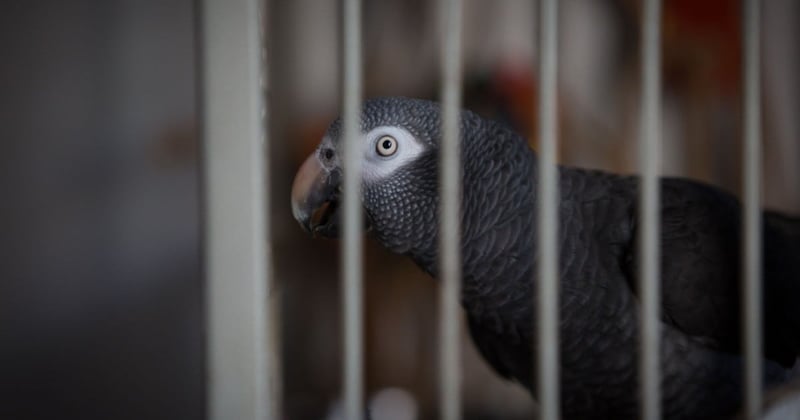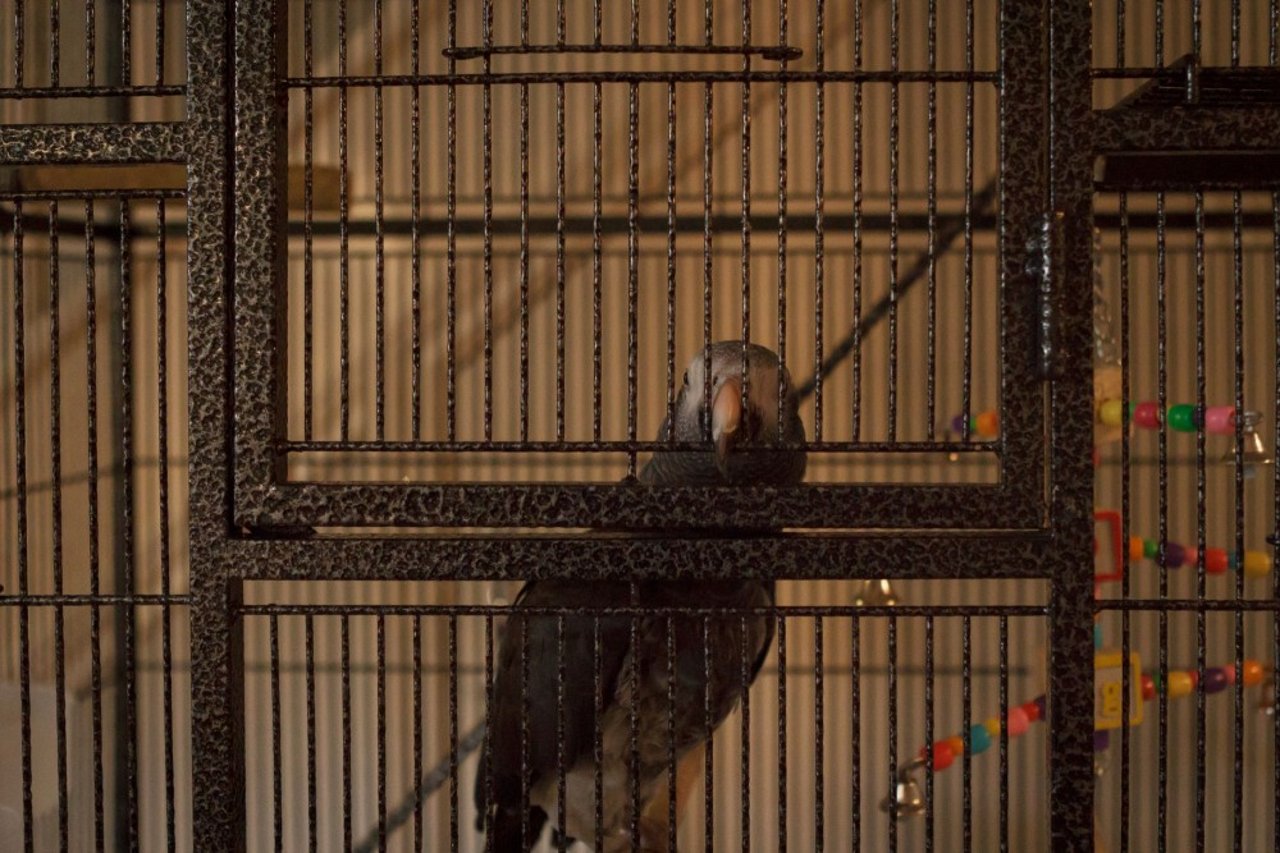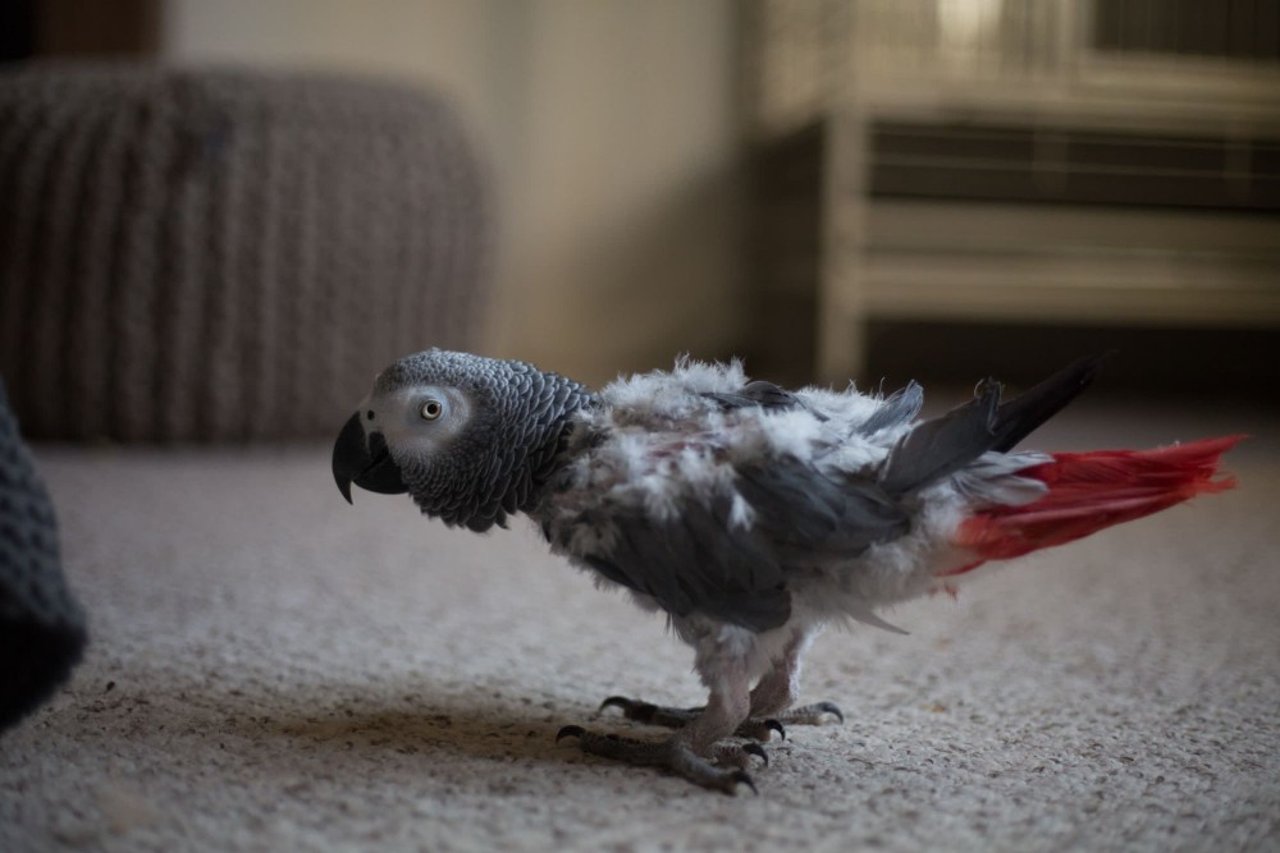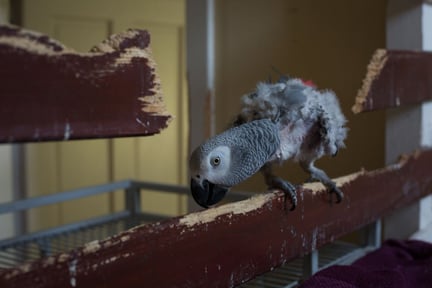
A day in the life of a pet parrot
Blog
African grey parrots are the most popular wild bird kept as a pet in Europe, USA and the Middle East. But their life as pets is one of suffering.
In an earlier story, we explained the unimaginable suffering endured by African grey parrots when they are poached and smuggled from the wild. Read on to see why the suffering continues in the home.
After being bought as a pet, the parrot's life is not her own. Ripped from the free world of the tree tops, she has been passed from poacher, to farmer, to transporter, to trader, to owner. She has been traumatised, terrified, abused and starved. The cages change shape but the horror does not. Only in this newest version of prison there is a kindness, but it doesn’t make up for the loss of her home.
Her new owner offers her a generic ‘parrot mix,' which is an unhealthy and imbalanced diet for an African grey parrot and a far cry from the varied diet she enjoyed in the wild. Her cage is 2 metres wide by 1 metre long. She can stretch her wings but she cannot fly. She can climb up the bars and swing from a perch but that is it. She is alone and trapped.
The wild parrot is a social creature used to living in a flock. Instead of the calls of other birds, the sounds of their feathers and flapping of their wings, all she can hear is the whirring of a fan and the ticking of a clock. Her species are highly intelligent, needing stimulation and enrichment but, most of all, community. Without it, alone in cage in a quiet house, with no interaction for most of the day, she becomes frustrated and bored.
She starts to pull her feathers out. It is the only thing she has to do, the only thing that can keep her occupied. One by one she wrenches at them, ripping them from her skin, causing pain. This behaviour is likened to a human self-harming. But her feathers will not grow back. What she is doing will leave her bald, cold and suffering but she cannot stop. There is nothing else in her life. She cannot fly. She does not have a mate or flock and the few scant hours her owner spends with her cannot fulfil her natural needs. She is condemned to a life of solitary confinement.
Be part of the solution
We know people often purchase exotic pets because they’re animal lovers. Animals bring joy to our lives, so it’s understandable that we’d want them to be part of our home. Many exotic pet owners, however, are unaware of the daily suffering their animals endure.
We encourage everyone to appreciate and respect wild animals where they belong – in the wild. We should only share our homes with domesticated animals who’ve evolved over thousands of years to be our companions, and whose needs can be completely met as pets.
Add your voice today and pledge not to buy or breed a wild animal as an exotic pet.
Pledge not to buy a wild animal as a pet
Looking to buy a wild animal as a pet? Hopefully we can change your mind.


